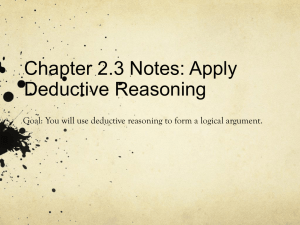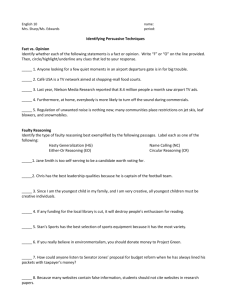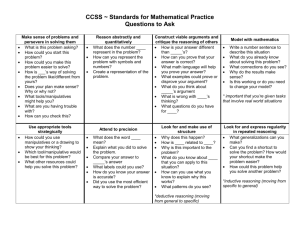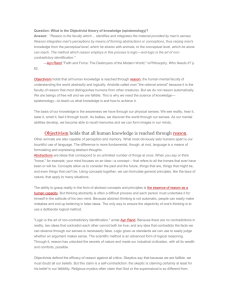Do sense perception, reason, and emotion have the same weight in
advertisement
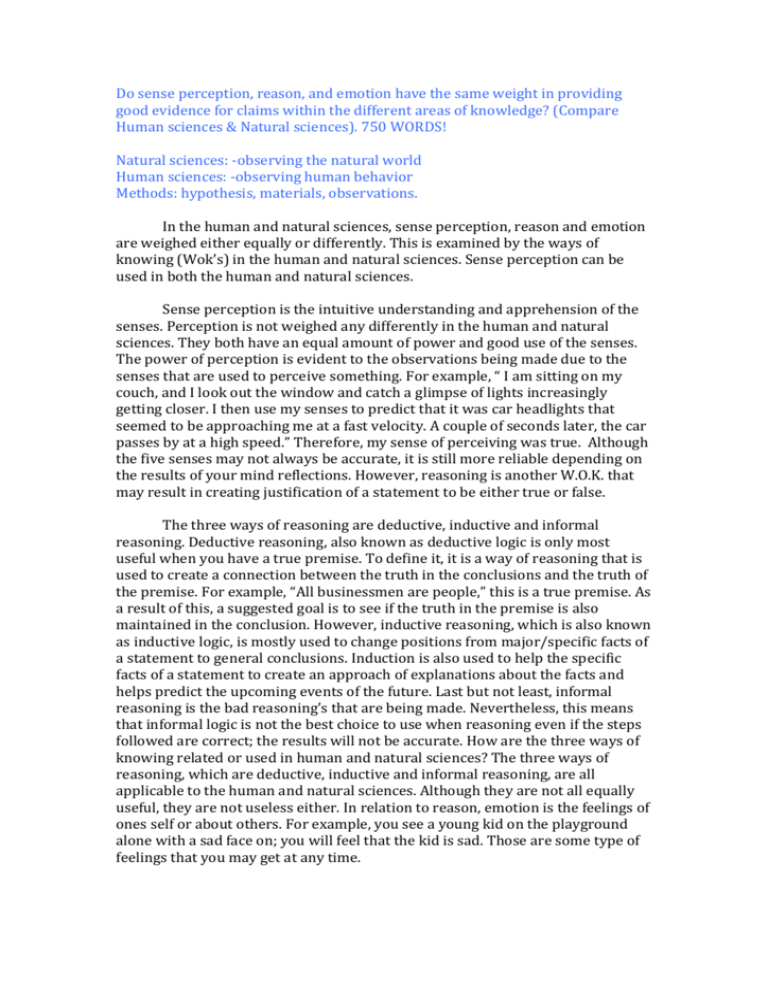
Do sense perception, reason, and emotion have the same weight in providing good evidence for claims within the different areas of knowledge? (Compare Human sciences & Natural sciences). 750 WORDS! Natural sciences: -observing the natural world Human sciences: -observing human behavior Methods: hypothesis, materials, observations. In the human and natural sciences, sense perception, reason and emotion are weighed either equally or differently. This is examined by the ways of knowing (Wok’s) in the human and natural sciences. Sense perception can be used in both the human and natural sciences. Sense perception is the intuitive understanding and apprehension of the senses. Perception is not weighed any differently in the human and natural sciences. They both have an equal amount of power and good use of the senses. The power of perception is evident to the observations being made due to the senses that are used to perceive something. For example, “ I am sitting on my couch, and I look out the window and catch a glimpse of lights increasingly getting closer. I then use my senses to predict that it was car headlights that seemed to be approaching me at a fast velocity. A couple of seconds later, the car passes by at a high speed.” Therefore, my sense of perceiving was true. Although the five senses may not always be accurate, it is still more reliable depending on the results of your mind reflections. However, reasoning is another W.O.K. that may result in creating justification of a statement to be either true or false. The three ways of reasoning are deductive, inductive and informal reasoning. Deductive reasoning, also known as deductive logic is only most useful when you have a true premise. To define it, it is a way of reasoning that is used to create a connection between the truth in the conclusions and the truth of the premise. For example, “All businessmen are people,” this is a true premise. As a result of this, a suggested goal is to see if the truth in the premise is also maintained in the conclusion. However, inductive reasoning, which is also known as inductive logic, is mostly used to change positions from major/specific facts of a statement to general conclusions. Induction is also used to help the specific facts of a statement to create an approach of explanations about the facts and helps predict the upcoming events of the future. Last but not least, informal reasoning is the bad reasoning’s that are being made. Nevertheless, this means that informal logic is not the best choice to use when reasoning even if the steps followed are correct; the results will not be accurate. How are the three ways of knowing related or used in human and natural sciences? The three ways of reasoning, which are deductive, inductive and informal reasoning, are all applicable to the human and natural sciences. Although they are not all equally useful, they are not useless either. In relation to reason, emotion is the feelings of ones self or about others. For example, you see a young kid on the playground alone with a sad face on; you will feel that the kid is sad. Those are some type of feelings that you may get at any time.




